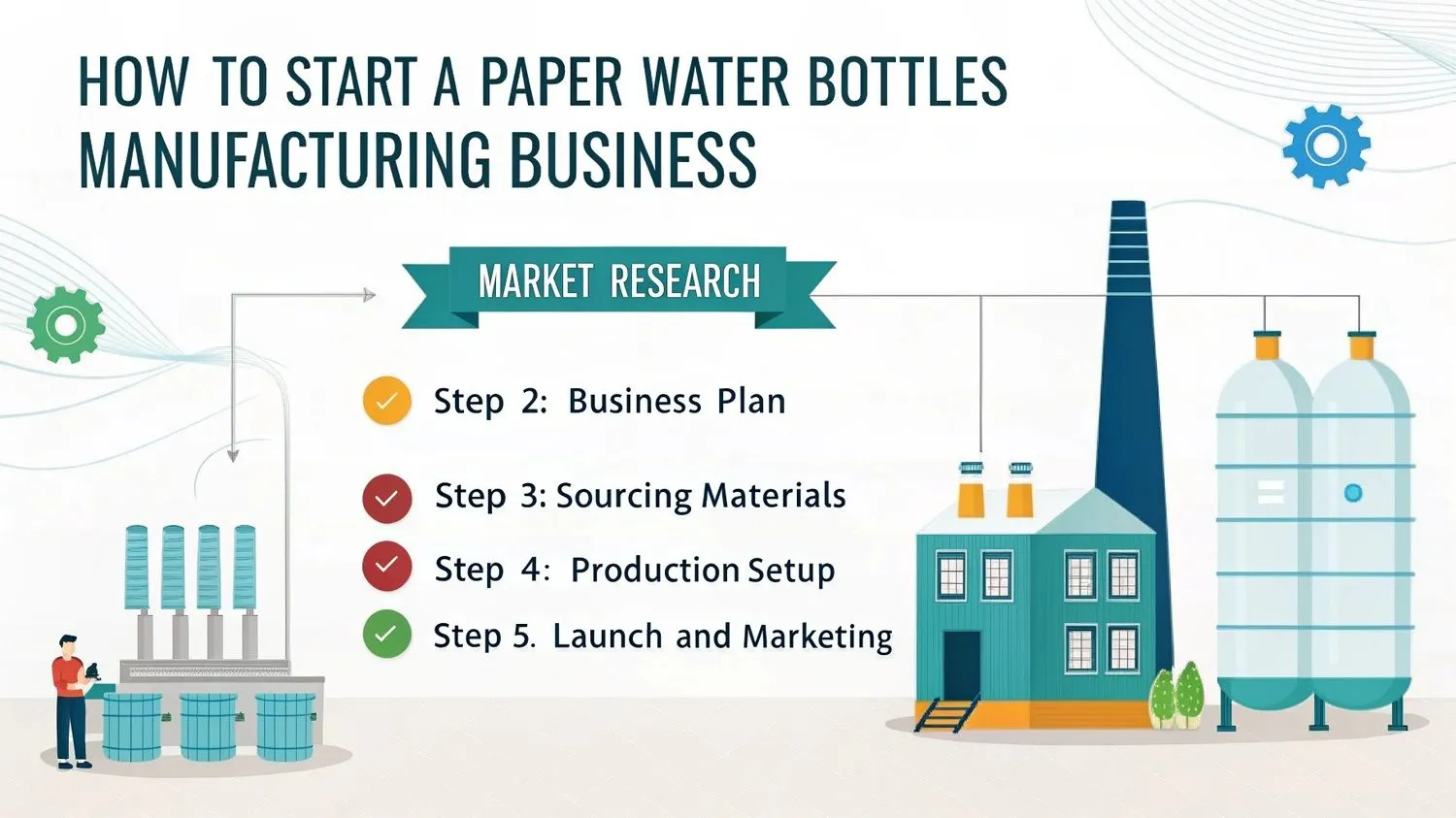The cottonseed oil plant presents a lucrative opportunity for aspiring entrepreneurs in India and other agrarian economies. With the rising demand for healthy and affordable cooking oils, cottonseed oil has emerged as a viable alternative to traditional oils. It is extracted from the seeds of cotton plants after the lint is removed, and the final oil is refined for consumption or industrial use. Establishing a cottonseed oil plant not only taps into a consistent agricultural by-product but also ensures a steady supply of raw materials throughout the year. This business offers high-profit margins, low raw material cost, and scalability, making it an excellent venture for new and seasoned entrepreneurs alike.
Contents
Why Start a Cottonseed Oil Plant?
Cottonseed oil production holds immense potential due to its widespread application in the food industry, cosmetics, pharmaceuticals, and even biodiesel. India, being one of the largest producers of cotton, ensures an abundant supply of cottonseed, which is often underutilized. Entrepreneurs can capitalize on this untapped resource by setting up a modern, efficient cottonseed oil plant that caters to the growing consumer preference for edible oils with a balanced fatty acid profile.
Market Demand and Trends
The edible oil market is expected to grow significantly in the coming years due to population growth, urbanization, and changing dietary preferences. Among these, cottonseed oil has gained popularity for its light flavor, high smoke point, and cholesterol-lowering properties. Additionally, the rising awareness around heart health and the nutritional value of unsaturated fats is contributing to the growing demand for cottonseed oil.
Cottonseed oil also finds use in processed foods such as chips, cookies, salad dressings, and mayonnaise, making it highly versatile. The commercial food sector, including restaurants and food manufacturers, relies on bulk supplies of cottonseed oil, which creates a dependable customer base for producers.
See Also: New Trending Manufacturing Business Ideas
Benefits of Starting a Cottonseed Oil Plant
Starting a cottonseed oil plant offers multiple benefits, especially for entrepreneurs seeking a low-risk, high-reward venture. Here are a few advantages:
-
Abundant Raw Material: Cotton is widely cultivated across India, ensuring a continuous and affordable supply of cottonseed.
-
High Profitability: With proper processing and marketing, cottonseed oil offers attractive profit margins.
-
Multi-product Output: Besides oil, the by-products like cottonseed cake (used as cattle feed) and hulls (used in biomass or paper industry) add to the revenue stream.
-
Government Support: The agricultural and food processing sectors receive various subsidies and incentives from central and state governments.
Key Steps to Start a Cottonseed Oil Plant
To set up a cottonseed oil plant successfully, entrepreneurs need to follow a systematic approach that includes planning, procurement, and compliance.
1. Business Plan and Market Research
Draft a comprehensive business plan that covers market analysis, competitive landscape, target customers, projected revenues, and investment requirements. Understand regional cottonseed availability and explore the best locations with access to raw materials and transportation facilities.
2. Legal Requirements and Licensing
Register the business as an MSME or LLP/Private Limited Company. Obtain licenses such as:
-
FSSAI (Food Safety and Standards Authority of India) license
-
Pollution Control Board (PCB) clearance
-
Factory license and labour registration
-
BIS certification for product quality (optional but preferred)
3. Site Selection and Infrastructure
Choose a location close to cotton farms or ginning mills to reduce transportation costs. The plant should have adequate space for machinery, storage, packaging, and waste management.
4. Machinery and Equipment
The core equipment for a cottonseed oil plant includes:
-
Seed cleaner
-
Oil expeller or solvent extraction machine
-
Filter press
-
Refining unit (for edible grade oil)
-
Packaging unit
Choose machinery based on production capacity. For small-scale units, cold-press machines can be sufficient, whereas large-scale plants may require sophisticated continuous processing systems.
5. Manpower and Skilled Labor
Hire trained operators to handle machinery, technicians for maintenance, and staff for administration and sales. Basic training is essential to ensure smooth plant operation and adherence to quality standards.
6. Raw Material Procurement
Establish contracts with cotton ginners or local cotton farmers to secure a steady cottonseed supply. Bulk purchasing during harvest seasons ensures cost efficiency.
See Also: Small Business Ideas in India
7. Processing and Production
Cottonseed oil production includes the following steps:
-
Cleaning: Removing dirt and impurities from seeds
-
Dehulling: Separating hulls from kernels
-
Crushing/Extraction: Expelling oil using mechanical presses or solvent extraction
-
Filtration: Removing impurities and waxes
-
Refining: Neutralizing acids and bleaching for edible-grade oil
-
Packaging: Bottling and labeling for retail or bulk sale
8. Marketing and Distribution
Develop a strong brand and promote it through wholesalers, retailers, and online platforms. Collaborate with FMCG brands or food businesses for B2B sales. Also, create awareness among consumers about the health benefits of cottonseed oil through digital and traditional marketing campaigns.
Financial Overview
The investment required for starting a cottonseed oil plant depends on the plant size, machinery, and infrastructure. Here is a rough cost estimate for a small to medium-scale unit:
-
Land & Building: ?10 – ?25 lakhs (if not leased)
-
Machinery & Equipment: ?20 – ?50 lakhs
-
Working Capital: ?10 – ?15 lakhs
-
Licensing & Registration: ?1 – ?2 lakhs
-
Total Estimated Cost: ?40 – ?90 lakhs
The return on investment (ROI) can be achieved within 1.5 to 2 years with proper planning and marketing. Monthly profits can range from ?1 to ?5 lakhs depending on the scale of operation and sales channels.
Challenges and Solutions
While a cottonseed oil plant is a promising venture, it does come with a few challenges:
-
Price Fluctuations: The cottonseed price can vary due to agricultural cycles. Long-term contracts and inventory management can reduce this risk.
-
Quality Control: Ensuring consistent oil quality is vital. Invest in lab testing and quality assurance systems.
-
Competition: The edible oil market is competitive. Offering value-added products like blended oils or cold-pressed oils can differentiate your brand.
Sustainability and Environmental Impact
One of the overlooked benefits of starting a cottonseed oil plant is its contribution to environmental sustainability. Utilizing cottonseed, which is often discarded as waste, promotes a circular economy. Additionally, the by-products like de-oiled cake and hulls are fully biodegradable and useful in agriculture and energy sectors.
By adopting cleaner technologies, minimizing waste, and using solar energy or biomass fuels in the processing plant, entrepreneurs can further enhance the eco-friendliness of their operations.
Future Scope
With increasing health consciousness and government emphasis on Atmanirbhar Bharat (Self-Reliant India), domestic edible oil production is likely to grow. Cottonseed oil, being both affordable and nutritious, fits well into this narrative. Entrepreneurs who invest now in a cottonseed oil plant will likely reap long-term benefits as demand rises steadily.
Additionally, opportunities exist in exports, especially to countries where cottonseed oil is not produced locally. Building international trade partnerships can open up new markets for high-quality Indian cottonseed oil.
See Also: banana leaf plates
Conclusion
Starting a cottonseed oil plant is a wise and sustainable business move for entrepreneurs looking to enter the food processing industry. With proper planning, efficient operations, and strategic marketing, this venture can offer high returns, job creation, and a valuable contribution to India’s agro-economy. Given its scalability, versatility, and profitability, cottonseed oil production is more than just a business—it’s a growth-driven opportunity for future-ready entrepreneurs.














